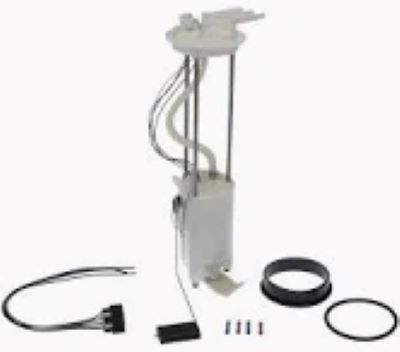A Fuel Pump plays a key role in controlling engine load by maintaining fuel pressure and supplying it constantly to guarantee that the car achieves peak performance at all times, no matter how much you demand from her. In most vehicles, Fuel Pumps deliver fuel at pressures ranging from 40-60 PSI giving the engine a neat mixture of fuel to air. If your Fuel Pump is faulty, and it fails to deliver adequate pressure, then the engine will be forced to compensate through harder work during acceleration requirements which in effect increases the load on your power unit ultimately reducing fuel efficiency by up to 15% according certain automotive research.
This is because high-performance engines, especially those from turbocharged vehicles require Fuel Pumps capable of delivering fuel at higher pressures and volumes. For one, turbocharged systems can require up to 30% more fuel during maximum output, a lot of ask from the Fuel Pump. The heavier load on the engine leads to higher fuel consumption and greater wear of important components when a pump has difficulty fulfilling these demands. As the fuel pressure drops below a proper level, adding more air to keep adjusting and it will change your combustion cycle too therefore increasing you have physical load.
Variable flow rate fuel pumps, a staple of all modern vehicles simply metered out fuel "in relation to engine demand" which optimized load management. Since it times the delivery of fuel perfectly with engine speed and throttle position, these pumps eliminate excess work for your motor which is great. According to automotive authorities, motors graced by way of variable-fee pumps take advantage of a 10% discount in standard engine load.

Engine misfires- An engine that is being overworked will dirty the spark plugs, not to mention bring about a rough ride if you are trying accelerate too hard and faster than what your car can handle. The misfires from an engine don't just waste your money on fuel but also hammer the cylinder walls, piston and valves especially when you are under high load. Studies have shown that extended engine misfiring due to lack of appropriate fuel delivery can reduce an engines life up to 20%: a severe financial effect directly connected with Fuel Pump good quality. Engines running under a heavy load require uniform fuel delivery via functional Fuel Pumps for longevity and overall efficiency.
Cold: Fuel Pump efficiency may suffer from reduced fuel viscosity, requiring more work to push thicker heavier coolot- through the lines (raises engine load). A drop in 10 percent on the fuel-delay-edge of edge can come during cold starts, as well as responsiveness. In fact, the phenomenon is usually more pronounced in areas that suffer severe winters and most drivers experience higher fuel consumption and engine wear due to cold starts. This is being limited to the freely flowing of fuel and then also having a steady flow creates less load impacts which provide optimum engine performance in these thermal envelopes; that's where cold-resistant Fuel Pumps step up.
On the other hand, high-flow Fuel Pump are perfect for heavy-duty vehicles or those meant for off-road use because it restricts arranged of load surges such as during climbing and towing. These will flow more, meaning the engine can continue to make consistent power without having to pull in extra air. Fuel Pumps are known to let the engine load drop off by about 12% under demanding conditions, thereby saving it from being overburdened and would last longer.
In essence, Fuel Pumps that are well matched and properly maintained help keep engine load in check which can impact performance, fuel economy AND component life. For additional information in selecting and sustaining Fuel Pump, to get your load management right on the vehicle visit only at Fuel Pump were you will received an expert aid together with more options that are high quality suited for different automobile requirements.
